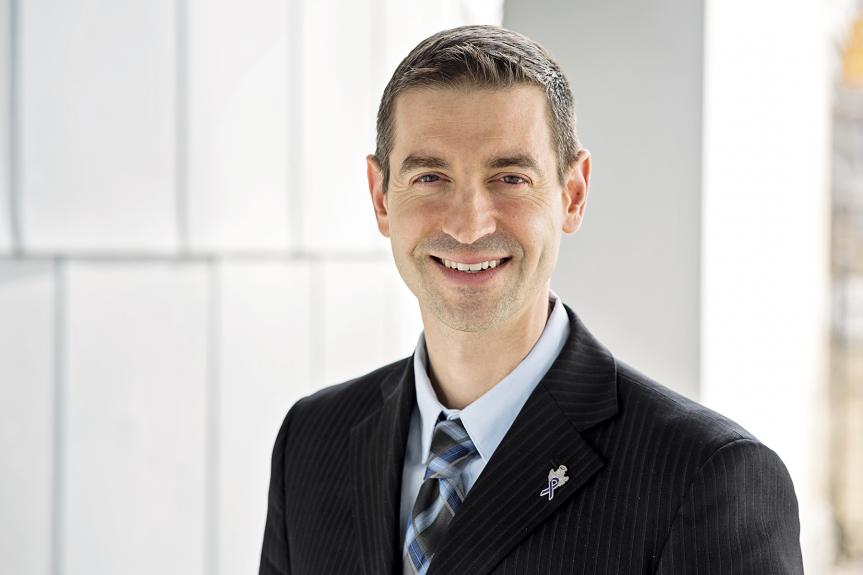Approximately 4,000 deaths by suicide occur in Canada every year – 11 every day – making it the second leading cause of death among youth and young adults between the ages of 15 and 34.
It’s a public health issue with far-reaching impacts, and it can be prevented.
Organizations behind the pilot of a suicide prevention program called Youth-Nominated Support Team (YNST) hope it will improve outcomes for young people who have recently reported a suicide attempt or have serious thoughts of suicide.
The pilot is a collaboration between Suicide Prevention Ottawa (SPO), Pleo, The Royal, and members with lived experience, and funded by Bell Let’s Talk, an annual event that promotes awareness of mental health and raises funds for mental health initiatives in Canada.

Dr. Zachary Kaminsky, DIFD Mach-Gaensslen Chair in Suicide Prevention Research at The Royal, says YNST was introduced to SPO by a mother and member of SPO’s YNST working group who has personal experience with a young person dealing with suicidal thoughts.
YNST is essentially a solid support network for vulnerable youth, set up before a moment of crisis. In this model, an adolescent between the ages of 15 and 20 who recently reported a suicidal attempt – or has had recent serious thoughts of suicide – is linked up to a team of three to four supportive adults with whom they have an existing connection.
Members of the mentor team are chosen by the young person and may include adult family members, teachers, coaches, neighbours, and religious, spiritual, and community leaders.
In clinical trials of YNST, it’s been found that the adolescents whose treatment program included YNST were less likely to lose their lives to suicide, especially when looking at the years after the intervention ended.
In the Ottawa YNST pilot, Pleo staff give the members of the adult mentor team a one-hour psychoeducational training session on suicide prevention techniques, with specific focus on the young person’s treatment plan.
The adult mentors connect weekly to their young charges. The main idea is to help them stick to treatment plans, and since early interventions can be effective, encouraging them to seek help as soon as it’s needed. In suicide prevention it’s widely understood that simply lending a sympathetic ear can alleviate feelings of isolation that lead up to thoughts of suicide.
This YNST pilot is designed to support 12 young people for 12 weeks. The Royal’s role is to refer youth from the inpatient unit and evaluate results after six months.
Kaminsky points out that if the funding is in place there’s no reason YSNT can’t be expanded and offered more broadly.
“One of the interesting things about this is that it can be made available to outpatients and people in the community if they’re waiting for additional services. There’s a potential for this to help a lot of people,” says Kaminsky.
“We're excited to give it a try. If there’s anything we’ve learned during the pandemic it’s that feeling valued, supported, and connected to others is important, and that’s true for absolutely everyone.”
August 7, 2024 update
